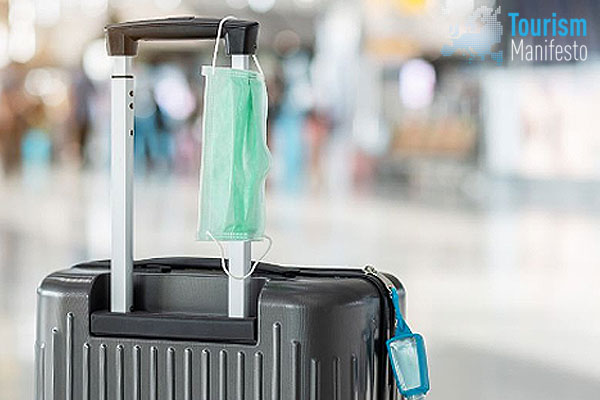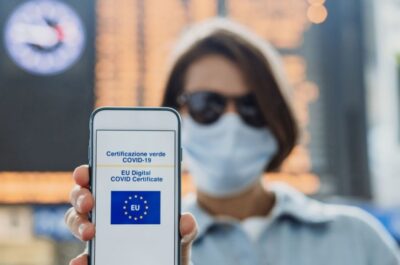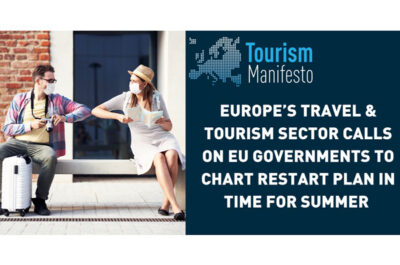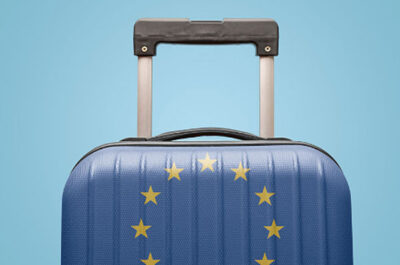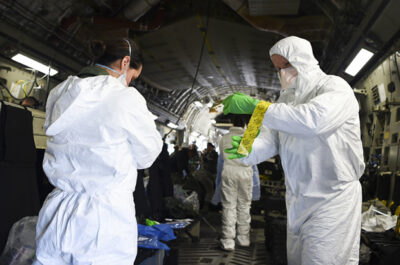The aim of the Recovery and Resilience Facility is to provide large-scale financial support for reforms and investments undertaken by Member States, to mitigate the economic and social impact of the coronavirus pandemic, making the EU’s economies more sustainable and resilient.
If it is not in the plan, it is not in the budget: the European Tourism Manifesto alliance, the voice of the European travel and tourism sector, urges European Union Member States to make tourism a strategic element in their national recovery plans in order to harness the potential of the sector to generate jobs and growth, and to reap the benefits from green and digital transitions.
According to the European Commission’s Communication ‘Europe's moment: Repair and Prepare for the Next Generation’1, travel and tourism is one of the most affected ecosystems by the COVID-19 and requires 161 billion euros2 worth of investment to bounce back to pre-crisis levels. The new Recovery and Resilience Facility3, proposed by the Commission to help the EU rebuild after the pandemic, offers an unprecedented opportunity to support tourism and ensure that the sector helps to drive digital and green transitions, and thereby strengthens both economic and social resilience.
The aim of the Recovery and Resilience Facility is to provide large-scale financial support for reforms and investments undertaken by Member States, to mitigate the economic and social impact of the coronavirus pandemic, making the EU’s economies more sustainable and resilient. In order to benefit from this unprecedented funding opportunity, Member States must submit to the Commission as from 15 October 2020 (until April 2021) their draft recovery and resilience plans outlining national investment and reform agendas in line with the twin strategic objectives: digitalisation and sustainability.
Tourism must be firmly incorporated in the recovery and resilience plans. Meanwhile the sector needs continued support to survive and help to drive recovery. Tourism is micro/SME dominated, a composition on which Europe’s distinctiveness and appeal as a destination depends. Smaller businesses always return employment to the economy faster than larger corporations: access to short-term funding means long-term job generation. The sector accounts for 9.5% of the EU’s GDP, provides jobs to 22.6 million people4 and has a direct impact on transport, retail, agro-food industry, and the wider economy. According to UNWTO5, Europe saw a 66% decline in tourist arrivals in the first half of 2020 and WTTC estimates6 that the region risks losing 29.5 million of travel and tourism jobs (80% of 2019) and losing 1,442 billion euros in travel and tourism GDP (80% of 2019) due to the COVID-19. The European economy and social wellbeing are clearly in danger if we do not take urgent action in building and financing the recovery of the travel and tourism sector: 1 euro of value generated by tourism results in an additional 56 cent of added value in indirect effect on other industries7. Investing in tourism will provide long-term benefit to communities, visitors and business throughout Europe.
With appropriate support, tourism can be one of the most effective engines to deliver sustainable development: it supports employment across all areas and demographics, contributes to well-being, and generates revenue needed to preserve community identity, culture and heritage. It is also one of our best exports. Europe offers magnificent tourist attractions with a wide variety of accommodations, such as short term rentals, reliable transportation, and child-friendly, safe destinations.
Tourism is transversal and its long value chain touches upon multiple sub-sectors. A healthy travel and tourism ecosystem can help achieve all four general objectives of the Recovery and Resilience Facility: promote the EU’s economic, social and territorial cohesion, strengthen the Union’s resilience, mitigate the impact of the crisis and support green and digital transitions.
It is therefore essential that impact on the travel and tourism ecosystem is an evaluation criterion for all major components of Recovery and Resilience plans. The multiplier effect of smart investment which also benefits tourism is highly significant. The European Tourism Manifesto alliance is ready to help Member States in drafting their Recovery plans to ensure that the proposed reforms and investments create a favourable environment in which tourism can develop in a sustainable and resilient way, and continue to create jobs, fostering cohesion and building the path towards a sustainable recovery from the social and economic impact of the COVID-19 pandemic.
1. Communication from the European Commission ‘Europe's moment: Repair and Prepare for the Next Generation’, 27th May 2020 – https://ec.europa.eu/info/sites/info/files/communication-europe-moment-repair-prepare-next-generation.pdf
2. Commission Staff Working Document ‘Identifying Europe's recovery needs’, accompanying the document Communication from the European Commission ‘Europe's moment: Repair and Prepare for the Next Generation’, 27th May 2020 –
https://ec.europa.eu/info/sites/info/files/economy-finance/assessment_of_economic_and_investment_needs.pdf
3. Commission presents next steps for 672.5 billion euros Recovery and Resilience Facility in 2021 Annual Sustainable Growth Strategy, 17th September 2020 – https://ec.europa.eu/commission/presscorner/detail/en/qanda_20_1659
4. WTTC, EU 2020 ANNUAL RESEARCH: KEY HIGHLIGHTS (2019 data) – https://wttc.org/Research/Economic-Impact
5. UNWTO, World Tourism Barometer, August/September 2020 – https://www.unwto.org/news/international-tourist-numbers-down-65-in-first-half-of-2020-unwto-reports
6. https://wttc.org/News-Article/More-than-197m-Travel-Tourism-jobs-will-be-lost-due-to-prolonged-travel-restrictions
7. Communication from the European Commission ‘Tourism and transport in 2020 and beyond’, 13th May 2020 – https://ec.europa.eu/info/sites/info/files/communication-commission-tourism-transport-2020-and-beyond_en.pdf
Vicky is the co-founder of TravelDailyNews Media Network where she is the Editor-in Chief. She is also responsible for the daily operation and the financial policy. She holds a Bachelor's degree in Tourism Business Administration from the Technical University of Athens and a Master in Business Administration (MBA) from the University of Wales.
She has many years of both academic and industrial experience within the travel industry. She has written/edited numerous articles in various tourism magazines.











